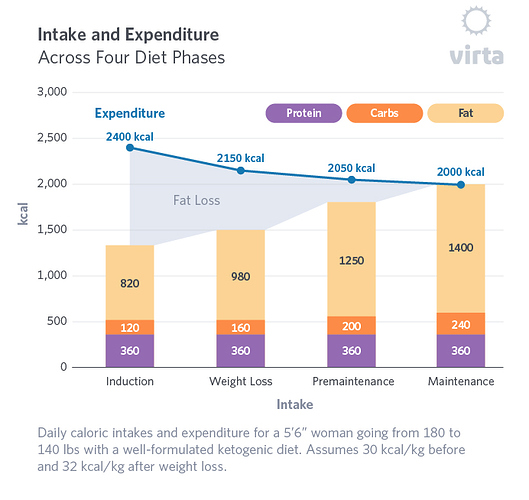It’s actually wonderful that you are trying to get and give reliable information, not nit picky at all. Sorry for starting with almost no info, I was taught not to talk about myself a lot, it’s hard to break.
I eat the same things almost every day: pork, liver, brains (weird, but I got used to them since childhood), mussels, butter, cheese, eggs. Unfortunately, sometimes (once a month maybe?) I have to eat things that are not keto, because (and I think it could be an issue for many here? or is it just me?) people give fruits and seed oils as gifts ‘for health,’ though I am begging them not to. I feel horrible throwing away food, especially after real periods of starvation in childhood. Actually, it’s only after eating these things that I feel guilty and try to go fasting; maybe not the healthiest move, but.
I use Cronometer website, which might not be 100% right all the time, but suggests I eat 550-1550 of cals per day. Macro ratios are around 66% fat, 33% protein (5 gr net carbs, 115 gr fat, 120 gr protein) on 1550 days; and around 49/49% (3 gr net carbs, 30 gr fat, 60 gr protein) on 550 ones.
Normally I eat one large meal and one snack of cheese/eggs/etc. It’s a norm for around half a year; I used to eat once a day, but the ‘carb inputs’ from time to time throw me out of it, since they usually make people more hungry.
When I skip meals, I end up eating around 550 cal, mostly meat and organ meat. When I skip days, then, well, it’s 0 on the skipped day and normal 550-1550 on the next.
I am 26, 172 cm (5.64 ft), 88 kg (194 lbs). Sorry, I don’t know my fat %, and online calculators give wildly different results, but I would guess 30-35%. I don’t know exactly what you mean by body conformation, so sorry if my answer is off, but: fat is mostly in bosom and arms, relatively not a lot in waist and legs/hips. No diseases that would affect/be affected that I know of. No medications.
Metabolic issues? I hope I am not throwing some useless information here, but my metabolism might be slowed after I’ve had something similar to anorexia 6-7 years ago and stopped eating almost completely. (And, unfortunately, whenever I WAS eating something, it was carbs, because they were cheap and the only thing I could afford at the time). That’s the point after which I’ve gained weight, before I was just, well, normal.
The funny thing is I did not start keto on purpose. It accidentally just so happened that I was eating only keto foods for a month and started feeling so much better that never wanted to go back. Before it, I came in terms with constant abdomen pain, and now it was gone. And suddenly my mind was so much more clear, I never knew it could even be like this. I did not want to eat and could focus on other things, even my skin improved. Using up excess fat storages is just a bonus, but if I already started it, I want to go to the end.
Thank you so much for congratulations! I was trying to use up these 37 kg slowly, over a year.
Thank you both for serious/precise attitude and wanting to help. I did not expect it and sincerely hope to be as much of use (though I think I need to learn more before that).


